THEY’RE too young to know. Just little preps walking in for their first day of school in country Queensland. But the chilling grip of ice has already got them in its claws.
St George, an affluent farming town 550km west of Brisbane, shares the horror show of ice, playing morning, matinee and night, with communities the length and breadth of the state.
But this town stands apart. This is one place prepared to be honest about the devastation.
And its stories will break your heart. Ten-year-old kids are addicted to ice.
There are families with four generations of drug users.
A 14-year-old schoolgirl was kept up all night because all the adults in her home were on an ice bender. She complained. She’d be too tired for school.
“One of the aunties has actually given her ice to keep her awake,” says Robyn Fuhrmeister, chairwoman of community support group Care Balonne.
The next day the girl had a fit in front of her classmates.
In recent early-morning raids on alleged ice traffickers in the town, police ushered six kids out of one home. They had been getting ready for school when police crashed through the door and arrested two adults suspected of running a drug network from the house.
The St George cultural centre sits proudly on the town’s flower-lined main street. Inside is an honour roll of a generation of St George locals lost in WWI on the other side of the world.
A century later, desperate residents sat under that honour roll to plan a counterattack to save a generation at risk of being wiped out without going past the outskirts of town.
Mayor Richard Marsh told the forum that the biggest concern was the devastation wrought on those five years old and younger.
In St George the kids turn up for prep weighed down by more than an oversized backpack.
From 2009 to 2015, as the ice scourge took hold, the number of children socially and emotionally ready to start school plummeted.
Now, less than half of the youngsters meet benchmarks when they start prep.
“As a school we are devastated with that,’’ St George State School’s head of special needs Vicky Parker told the forum.
“These are babies, these are our five-year-olds that are not on track. We are terrified for next year’s data.”
Ninety per cent of children at the school attend a “breakfast club” to get fed.
Some go to school with no shoes.
Local care charities have been forced to stop handing out food vouchers to families after discovering they were being swapped for drugs.
Instead, they now buy the food to make sure it actually makes it to the fridge.
Families who have run out of food for their children also started gaming charities and churches organisations – hitting multiple organisations at once for financial help.
All the services and churches recently signed a memorandum of understanding to share information so they would know if addicts were shopping for help.
Ms Fuhrmeister, the community worker and councillor, has felt the grip of ice reach into her own home to drag her son down. And every day she comes face to face with the mothers, fathers, sons and daughters from other families struggling through the same blizzard.
Families living with addicts who are up all night, banging their heads against walls, screaming and kicking in drug-fuelled rages which can last for up to seven nights in a row. Bad when they have ice in their veins. Worse when the ice has drained out and their body is screaming out for more.
“If you wanted it now I could probably take you to about 10 places I know and go and buy it,’’ Ms Fuhrmeister said.
“It’s very cheap and it’s very easy to hide.”
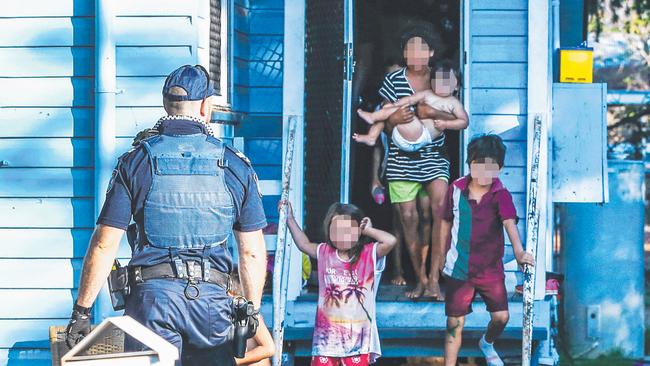
Three years ago there were just 65 drug arrest in town. In the past 12 months it hit 235.
When police blitzed the town in October after an 18-month investigation they charged eight locals from St George and surrounding areas with the serious charge of drug trafficking and laid more than 100 charges of supply.
The weary and battered police had heard the pleas from town for help. And they knew what was going on.
They’d entered the darkened houses at night and been unable to switch on any lights.
All the light bulbs were missing. A classic telltale sign of a drug den. The junkies had ripped out the bulbs to use as makeshift meth pipes because the real deal has been banned from sale.
The police and the dealers had been playing games of cat and mouse for months. The dealers and addicts watching the driveway at the police station to see what cars were out, timing their deals to take place during shift changeover. When the dealers were on the move, they hid drugs in women’s bras and babies’ nappies because they knew police could not search there.
Local CIB head Detective Sergeant Isa Tolete said ice-related jobs were swamping police.
“The majority of our jobs here are ice related. I’m not going to sugarcoat it,” he said.
But it takes time to pick apart a network with tentacles of dealers, addicts and users stretching in every direction
Detective Inspector Paul Hart, who led a team of more than 60 police for the raids, said they relied on extensive intelligence to build their cases against the suspected dealers who rarely handled large quantities of ice.
“The gear comes, it gets used and then it’s done and they wait for the next run,” he said.
“No one’s holding big quantities, which makes it difficult for us. You can certainly notice when a batch hits town, you might have a spike in DV over a weekend.”
After the raids, residents were stopping Det Insp Hart on the street and saying, “thank you, something’s finally been done”.
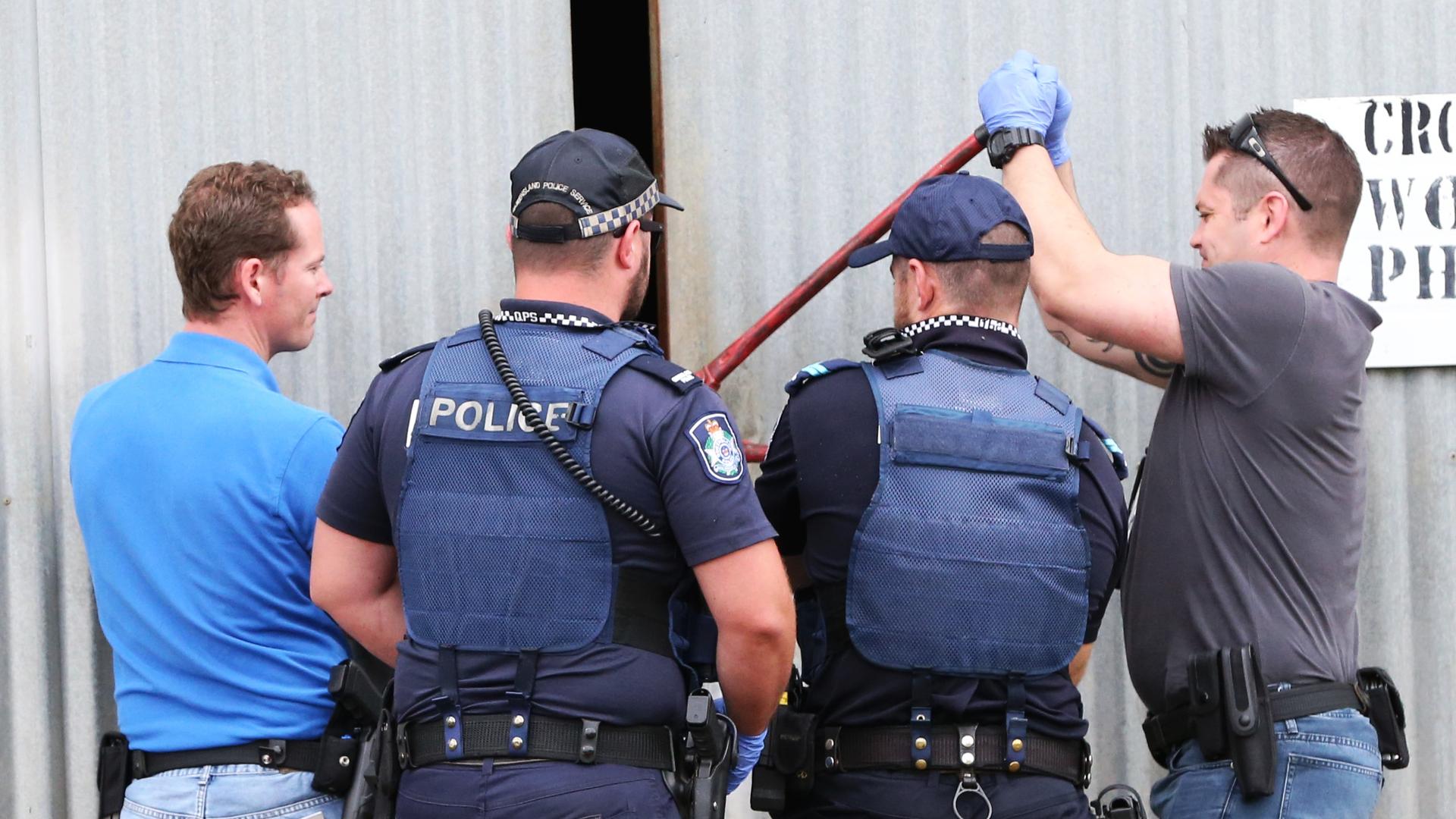
Much of the misery is hidden behind closed doors but periodically, the horrors of the drug – violence, robbery, abuse – burst into public. And nearly every person in town has a personal link to the devastation. Every point of ice injected into a body shatters into a thousand shards of despair that eventually plummets onto someone else’s doorstep. Or into their letterbox or flowerpot in the shape of a discarded syringe. Playgroups nominate an adult to clear parks of syringes before the children can play safely.
One ice-addicted mother gave birth and then handed her newborn child to authorities who were waiting at the labour ward door. It was the sixth child removed from her care. Family, friends and social workers pick up the pieces.
A family arrives home to broken glass or a door they swear was shut. Another break-in but it’s not the $5000 television or computer that’s missing. Addicts need a quick fix and nothing brings the next hit quicker than cash, but phones, iPads and jewellery are easily converted. When drug debts got out of control, Toyota LandCruisers go missing.
At night, the hush of the outback breaks over St George until it’s smashed by the shouts of anger and pain as angry mobs swarm into the street fuelled by drugs and alcohol. Outnumbered 50 to one, the police can only monitor the violence.
Police Liaison Officer Adam Osbourne says domestic violence is severely underreported. Better to cop a whack and some bruising or a telephone cord squeezed around the neck than bring extra attention to the ice-filled syringe that was used just before the violence broke out.
This is St George but frontline responders agree the horrors are replicated in just about every city and town across the state.
David Littleproud, Federal Member for Maranoa, which includes St George, organised the recent ice forum in the cotton-growing hub.
“Whatever town I go to, whether it’s St George, Chinchilla, Dalby, Roma, Goondiwindi or Warwick, I’m hearing people saying that ice is something that is just tearing towns apart,” he said.
“If I do nothing over the next two years as the member for Maranoa but try and deliver proper services to help people in rural and regional Australia then I’ll be happy with the tenure I’ve had because I’ve heard the stories of families broken. This is something that can get anybody and it’s absolutely frightening.”
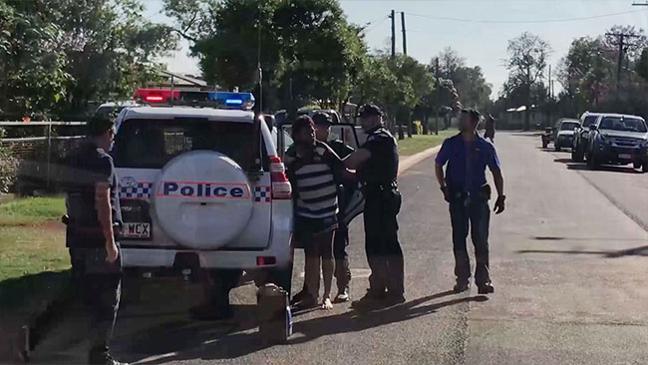
THE SMALLEST VICTIMS WITNESS HORROR
STUNNED children, half-dressed for school, file out of a suspected drug den.
A police officer ushers the kids – a little boy dressed only in maroon school shorts, a girl in pyjamas, an older girl carrying a baby in a nappy, and two boys in full school uniform – down the front stairs and directs them towards a trampoline on the bare, rubbish-strewn front lawn.
It’s 7.04am in St George, about 550km west of Brisbane. The kids clamber inside the trampoline’s protective netting and start jumping, stiff as soldiers, eyes fixated on the police.
Detectives inside the blue weatherboard house are scouring the drug den for the final pieces of evidence – syringes, clip seal bags, scales, drugs – in Operation Oscar Kohl, an 18-month investigation into the concentric rings of traffickers, suppliers and dealers fuelling the town’s rampant ice addiction.
The house was the first of dozens police would raid in St George and surrounding towns over three days.
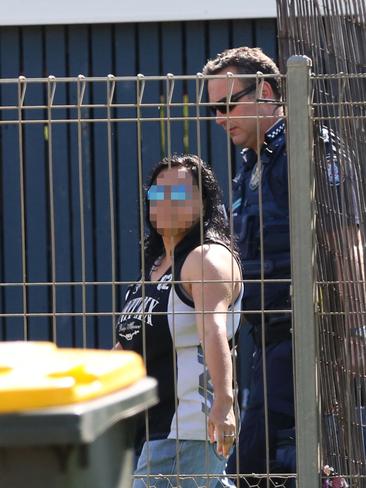
Many of the town’s 3000 residents had been waiting for this day. They’ve watched as ice seeped through their community, encroaching into the lives of nearly everybody. It’s nearly a mantra in town that ice does not discriminate. Young and old, rich and poor, professional and unemployed. It’s hit them all. It’s been impossible to escape its effects. Everyone had heard the statistics from the police of drug arrests going through the roof.
Three years ago it was just 65. Then it was 235 in the past 12 months.
What only some in town knew was that with each arrest detectives had been forensically mapping the labyrinth of dealers and suppliers running ice into the town. With community leaders pleading for help fighting back against the drug, police had been planning the October raids for months.
During the next three days, about 60 police including specialist teams and the dog squad from Brisbane, painstakingly foraging through house after house were continually confronted with the juxtaposition of seemingly mundane domesticity wrenched around the toxic waste of the ice scourge.
Eight alleged drug traffickers were charged during the three-day Operation Oscar Kohl. In total, 44 faced more than 200 charges. The maximum penalty for trafficking ice is 25 years jail.
Detective Inspector Paul Hart, who oversaw the operation, said as news of the raids filtered through town, residents were stopping police on the street and thanking them for taking on the drug problem.
“The reaction in town has been fantastic and we’re now getting other towns asking, ‘how do we get on board?’ ” he said.

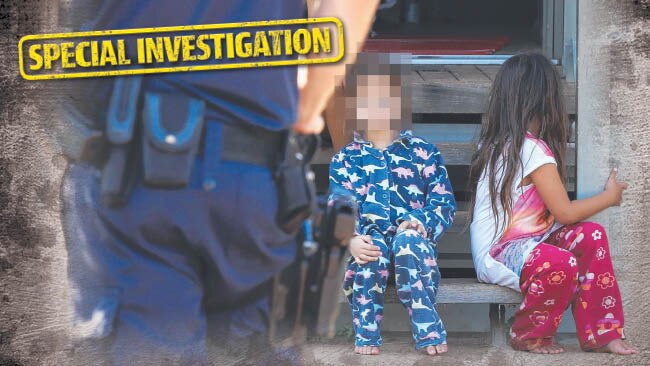
Here’s what you can expect with tomorrow’s Parramatta weather
As summer moves towards autumn what can locals expect tomorrow? We have the latest word from the Weather Bureau.
Here’s what you can expect with tomorrow’s Parramatta weather
As summer moves towards autumn what can locals expect tomorrow? We have the latest word from the Weather Bureau.